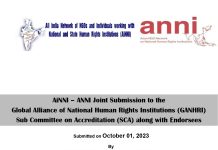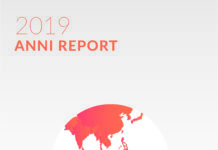Regional Summary: Independence and Effectiveness of NHRIs in Asia
Asian Forum for Human Rights and Development (FORUM-ASIA), ANNI Secretariat
The Year 2011 in Context
The past couple of years have seen an increasing international recognition of the role of NHRIs in the promotion and protection of human rights. A growing number of Asian countries have either recently established or are considering the establishment of NHRIs, including in Burma, where the Myanmar National Human Rights Commission (MNHRC) was set up in September 2011. Meanwhile the UN Human Rights Council on 16 June 2011 adopted a resolution on “National Institutions for the Promotion and Protection of Human Rights†– the first-ever Human Rights Council resolution to focus specifically on the work of NHRIs. The resolution acknowledges the significant role of NHRIs in the promotion and protection of human rights at national level, as well as their important role in the Human Rights Council, and calls for further cooperation with regional coordinating bodies of NHRIs.
These developments are set against the backdrop of a general deterioration in the situation of human rights in many countries in Asia. This can be seen, for example, in the adoption of various repressive laws such as national security laws, legislation and policies that infringe upon freedom of expression and restrict freedom of association and peaceful assembly in several Asian countries, including in Malaysia, Indonesia, India and Bangladesh.
In addition, violence and human rights violations by state agencies and impunity are on the rise, as illustrated by the growing number of enforced disappearances, extrajudicial killings, arbitrary arrests and detentions, and intimidation of human rights defenders across the region.
While there appears to be some relative progress in the development of democracy in some Asian countries, most notably in the authoritarian Burma, which is undergoing an apparent democratic transition, other countries have witnessed further setbacks. In the Maldives, for example, the first democratically-elected president Mohammed Nasheed was ousted in a controversial manner despite the introduction of a multi-party democracy after 30 years of autocratic rule. In the ongoing trial against him, there are serious reservations about the independence of the judiciary and fair trial standards. In addition, elections are expected to be held in several Asian countries in the next two years, including in Malaysia, Cambodia, and South Korea which may result in political changes. As a consequence of the high political stakes during these elections, close attention needs to be paid to the possibility of increased human rights violations in these countries.While there appears to be some relative progress in the development of democracy in some Asian countries, most notably in the authoritarian Burma, which is undergoing an apparent democratic transition, other countries have witnessed further setbacks. In the Maldives, for example, the first democratically-elected president Mohammed Nasheed was ousted in a controversial manner despite the introduction of a multi-party democracy after 30 years of autocratic rule. In the ongoing trial against him, there are serious reservations about the independence of the judiciary and fair trial standards. In addition, elections are expected to be held in several Asian countries in the next two years, including in Malaysia, Cambodia, and South Korea which may result in political changes. As a consequence of the high political stakes during these elections, close attention needs to be paid to the possibility of increased human rights violations in these countries.
With the growing challenges in the area of human rights at the national level, NHRIs have a greater and more critical role to play. While some NHRIs are playing commendable roles, many have underperformed as well. In such a critical juncture, NHRIs in Asia are in a crucial position and will be expected to play their role as a public defender of human rights in their respective countries.












